This article was written by 2018 Global Leadership Summit Journalist Intern, Kaja Bingham. Kaja is a senior in Minneapolis, Minnesota. She went on our Amsterdam and Berlin tour, and her favorite city was Zaanse Schans.
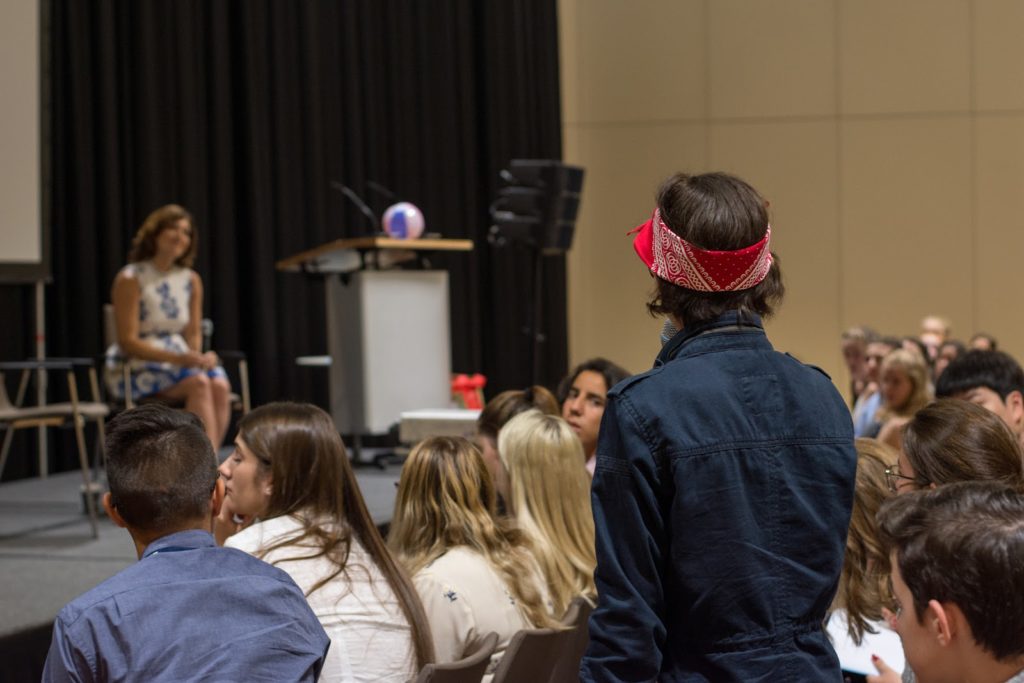
via EF Global Leadership Summit Photography Intern, Vedya Konda
Technology affects everything we see, everything we do. It affects how we make decisions, where we shop, and how we interact with one another. In an industry that plays such an integral role in our lives every day, it is imperative that everyone is included in the conversation. However, a glass ceiling still exists in the tech industry. The consistent exclusion of women prevents not only gender equality but also every voice from being heard. Going into the 2018 EF Global Leadership Summit I asked myself: how can we empower women in the technology industry?
I immediately began trying to think of solutions. I was overwhelmed by the cascade of ideas that flooded my brain as I tried to whittle them down to one answer. As my thoughts began to take shape, I felt that in order to answer this question I had to start at the root of this problem and begin with the people behind the industry. Through this context and understanding, I wanted to find a solution for giving every party a voice at the table. I believe this will allow society to ultimately harness the full potential and power of technology.
Starting from the early days of technology, women were not included in the picture. In 1973, engineers at USC began using Playboy images of Lena Söderberg, a Swedish model, to test their code on a new scanning device. The Playboy image of Lena quickly became the most widely known and used image to test image processing. Although this image was at the center of the success for inventions like the smartphone and the digital camera, it brings up an important point about gender inequality in the tech industry; using an image that dehumanizes women sends a message that women do not have a place at the table in the field of computer science. It’s no doubt that consistent microaggressions and sexism turn women and young girls away from the STEAM (science, technology, engineering, art, and math) track. According to a survey conducted by Microsoft, girls become interested in technology at 11 years old, and quickly lose interest at an average age of 15. Psychology professor Martin Bauer of the London School of Economics explains this phenomenon, “Conformity to social expectations, gender stereotypes, gender roles and lack of role models continue to channel girls’ career choices away from STEAM fields”. And that’s not all of it–in Silicon Valley, women hold 25% of the jobs, which means that oftentimes being a woman in the tech industry means being the only woman in the room.

via EF Global Leadership Summit Photography Intern, Vedya Konda
During my travels in Amsterdam and Germany, I visited and got to meet with many strong women who are taking the tech industry by storm. This includes Miral Kotb who combined her love for music with tech when founding the company iLumuniate, and Ann Makosinski who won the Google Science Fair in 2013 for her invention of the thermo-electric flashlight. Upon sitting down in the convention center in Berlin I was greeted by a warm and electrified crowd of young teens of all backgrounds, nationalities, and genders ready to listen and learn about the influence of technology on society. I was especially captivated by the story of keynote speaker Randi Zuckerberg’s journey as a female entrepreneur and tech mogul in such a male-dominated industry. We often hear the story of Randi’s brother Mark Zuckerberg, but often fail to hear the story of Randi who was absolutely essential to Facebook’s success. I wanted to understand her climb to triumph alongside her brother. Randi never had the intention of going into the tech industry. When she was flat-out rejected by the musical theater program at Harvard she decided to major in psychology. After graduation, she began working at an ad agency to develop expertise in digital marketing, but then quit her job to join her brother in Silicon Valley where she’d be pursuing a new dream…Facebook. Upon being asked what it was like to work with her brother in the beginning stages of Facebook she remarked that if she could have, she would have wished to be invisible. Doubting her worth as a woman in a room full of men, it was often times easier to sit back and watch the “professionals” do their work than take action and dominate! I was upset in this moment to see a woman I couldn’t imagine as anything but strong and fearless comment on how she once wished that no one would be able to see her because she doubted her abilities.
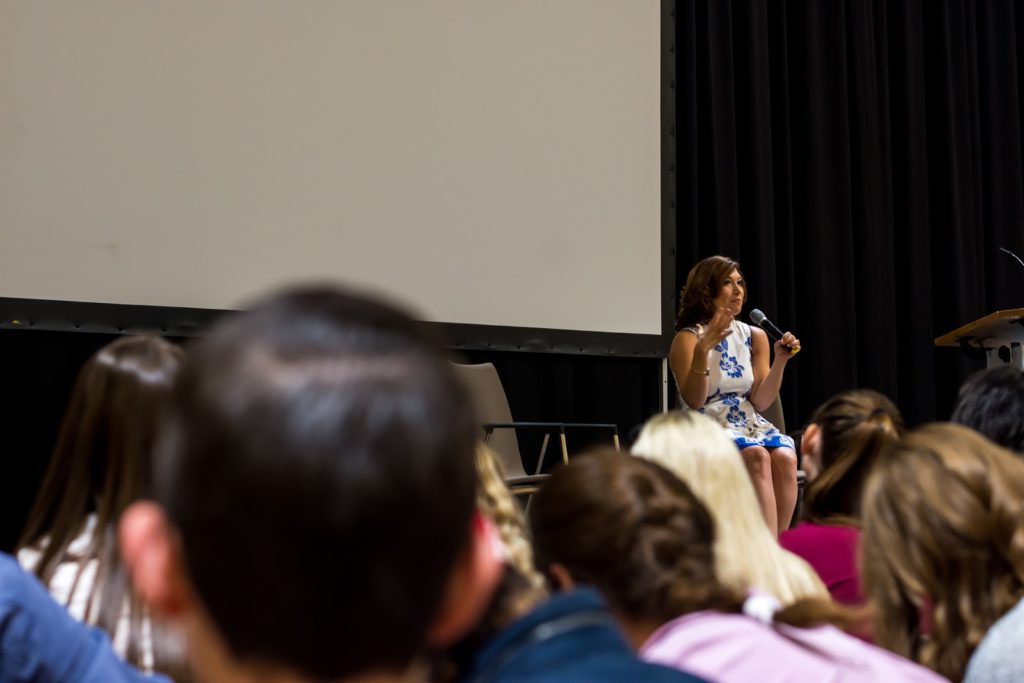
via EF Global Leadership Summit Photography Intern, Vedya Konda
Randi may have wanted to remain invisible at first, but found her power through Facebook’s monthly Hackathons. During these “hackathons,” employees would work on projects they were passionate about overnight at the Facebook office. During one of the hackathons, Randi created what would become Facebook Live. Many people thought the idea was silly, and that no one would use the platform. She claims, “Think outside of the box and stop caring about what others think of you, creativity is one of your greatest skills.” Her bold idea created a live streaming feature on Facebook that gained millions of users worldwide. After Randi’s massive success, she took a daring step–she left Facebook in the pursuit of working with and encouraging young girls to get into tech and pursue their wildest dreams–just as she had. People didn’t understand her choice and thought it was foolish. Pausing on stage she looked directly into the crowd of inspired high-school students and declared, “Think outside the box, be resilient and creative, believe in yourself even when other people doubt you. Remind yourself that you will not please everyone in life, especially as a woman. Keep making bold and strong decisions. Life is not always 100% perfect and rosy.” You could feel the sense of empowerment in the room and the sheer determination to lift up those around us. I felt united among hundreds of other like-minded teenagers–passionate and ready to change the world. Her words, however, are not the only uplifting thing about her. Randi has worked extensively to empower girls to try out and embrace STEAM.
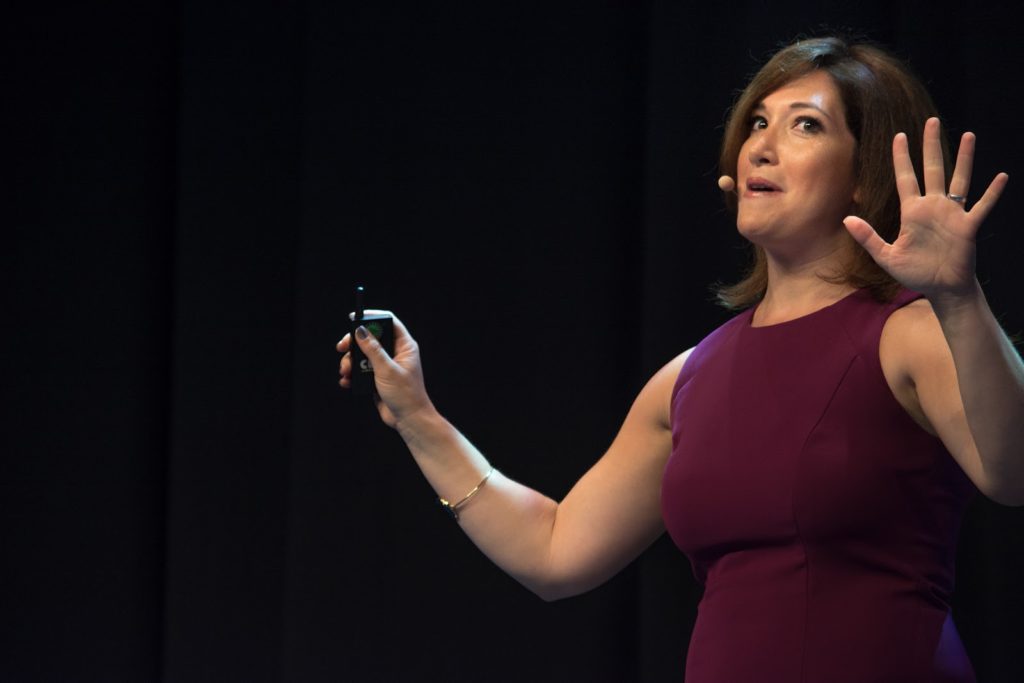
via EF Global Leadership Summit Photography Intern, Vedya Konda
Zuckerberg then went on to create her own television show, Dot, which aired on the Sprout network. Zuckerberg believes that we can begin to change the dialogue surrounding women in tech if we can integrate powerful, tech-savvy, intellectual women into pop culture. The plot for the show Dot was written for preschoolers and features a tech-savy young girl who uses her knowledge and creativity to explore the world around her. One thing Zuckerberg noted that hit home with me personally was the pattern we see in society of young women apologizing for interest or talent in the STEAM fields due to societal norms. I could relate to this statement as I have not identified with STEAM fields in school or striven to excel in them–perhaps due to societal gender constructs that I was not aware of. Zuckerberg’s TV show reinforces the idea that women belong in STEAM at a young age in order to build new societal norms of equality and avoid the sentiment that a woman doesn’t have the ability to work and thrive in tech. Additionally, research has shown that having strong female role models in tech opens the playing field for other women to join the game. The television show has made an impact, but Randi’s work to enforce the ideas and values of the show continues to inspire women worldwide.

via EF Global Leadership Summit Photography Intern, Vedya Konda
Randi’s conversation about women being turned off of STEAM at an early age opened the minds of all students at the Global Leadership Summit and motivated each group to include every voice. It was amazing to see students at the Summit start the dialogue of how we can utilize empathy and innovation to help those around us live better lives. Upon presenting our group’s ideas and competing to win a spot for our invention in the Nobel Museum in Stockholm Sweden, everyone kept Randi’s words of wisdom in mind:
“I look forward to hearing nos’, because when you do you are closer to hearing yes. Get over the fear of the word no, because it is the only definite thing that will happen in life. Roadblocks are essential in life–we are always pivoting and learning from our failure.”
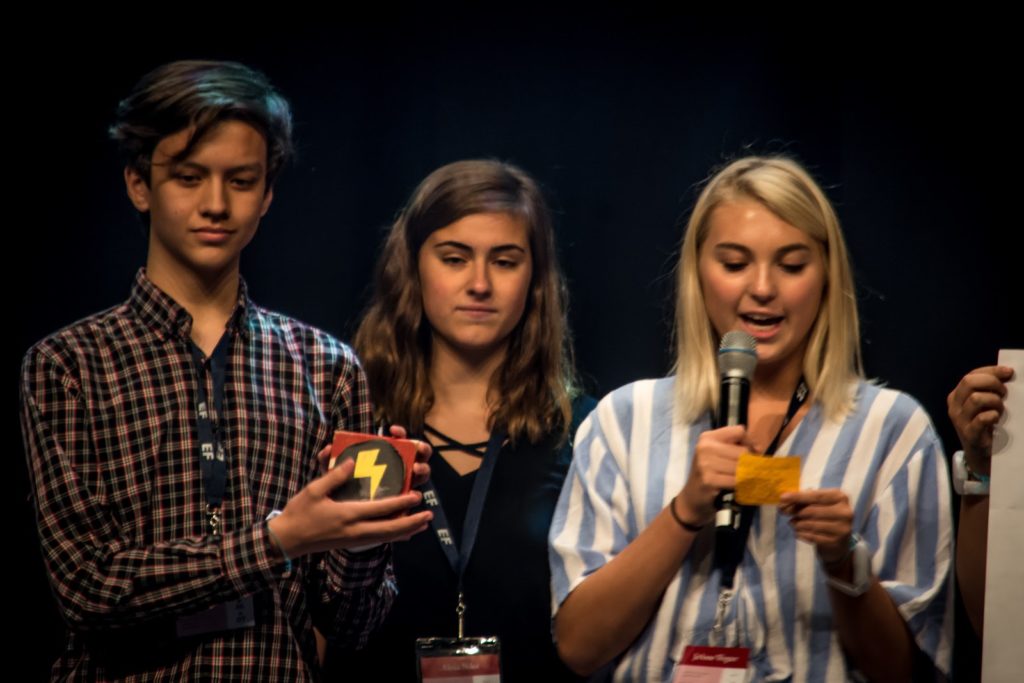
via EF Global Leadership Summit Photography Intern, Vedya Konda
At the Summit, we all quickly learned that failure is imperative to success. In order to achieve success, we would need to learn from defeat and brainstorm new ideas to work our way closer to a solution.
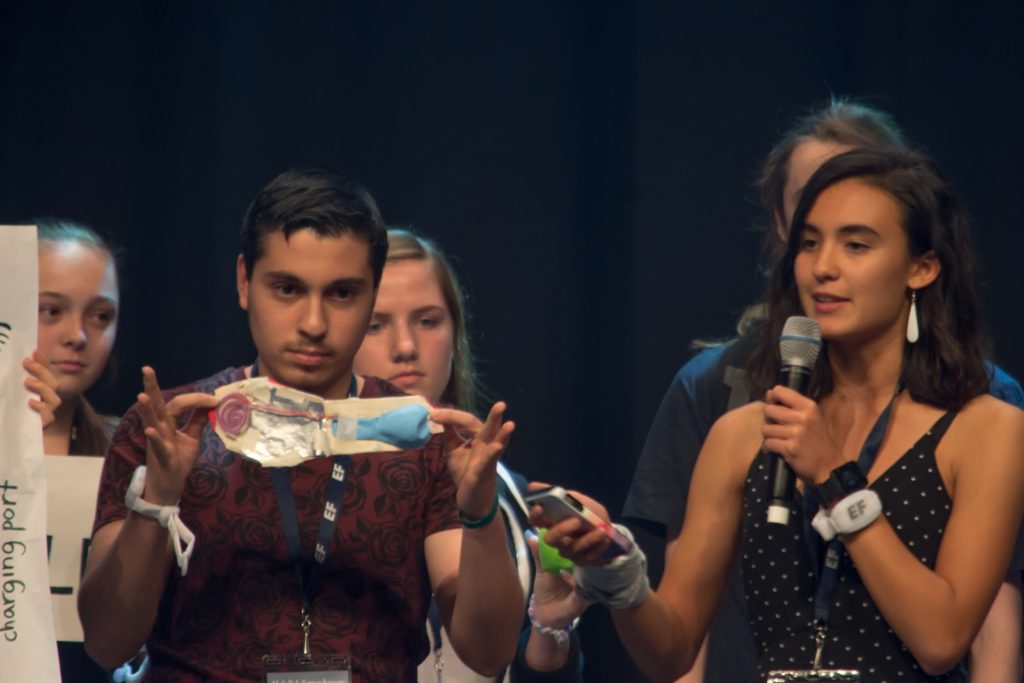
via EF Global Leadership Summit Photography Intern, Vedya Konda
Randi came to her own success through failure and perseverance. Her story demonstrates the resilience it takes in the tech industry to survive and thrive as a woman. Her story inspires women like me to believe that your gender plays no role in your worth or your capabilities, and rather your gender should empower you. Leaving the 2018 Global Leadership Summit in Berlin left me with a newfound sense of confidence and leadership. It is through my determination and love for STEAM that I am adamant about working towards a better world with no glass ceiling for the women of our future. As Randi says, “If you are going to change the world, find your passion and go for it.”
Related articles
